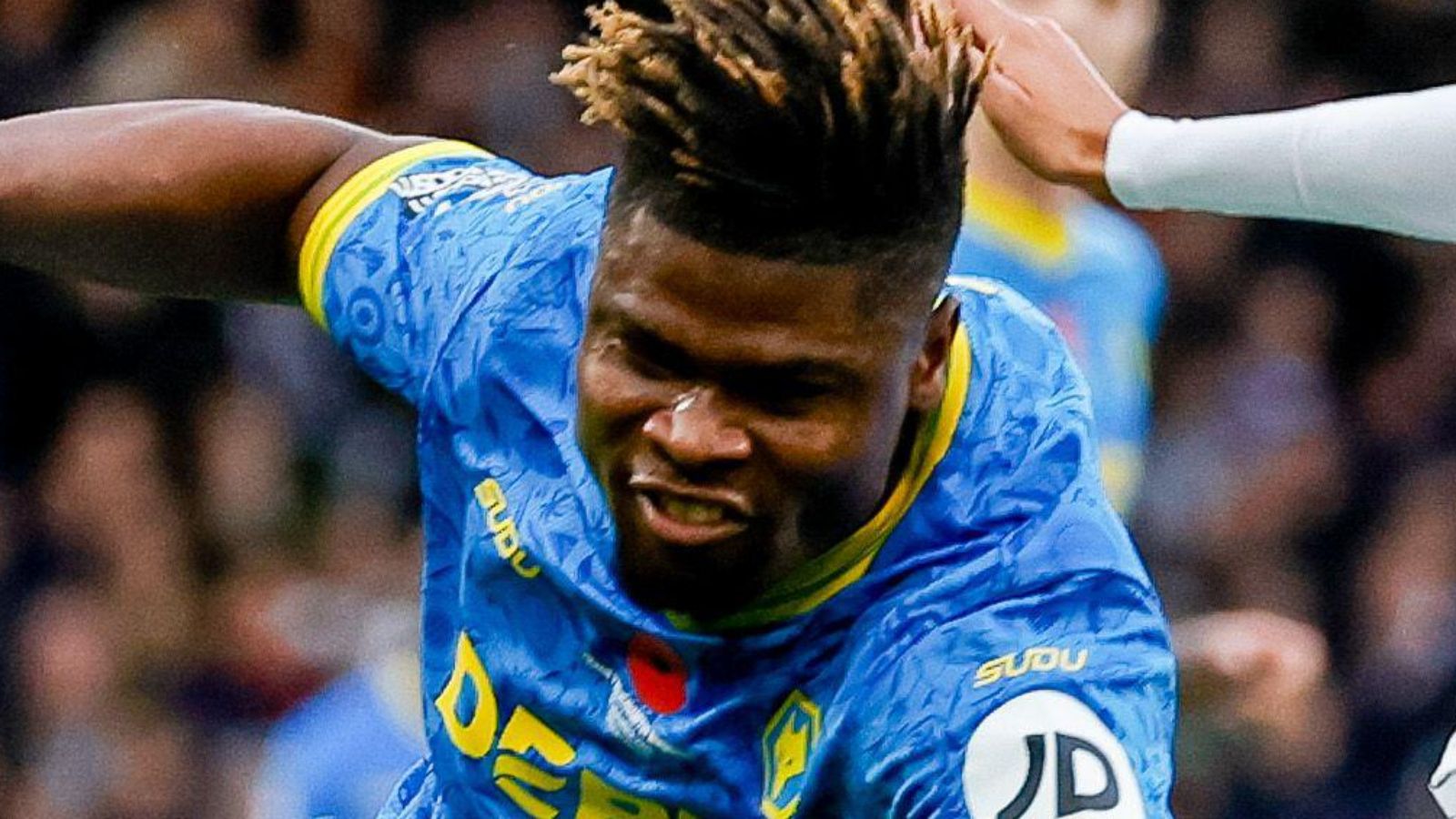Perhaps the only thing more absurd than becoming the first team in history to start consecutive English top-flight league seasons with 10 winless games is to do so while twice sacking managers who were recently given lengthy contract extensions.
The one outcome more ludicrous than even that scenario would be to reappoint the first of those axed managers whose failures the chairman explained in painstaking detail a few months ago.
Vitor Pereira lasted just 45 days into the three-year deal he signed in the midst of a run of five straight Wolves defeats in September. His last line-up, against a Fulham side somehow in worse form, resembled a cry for help.
It had been leaked on social media on Friday evening but readily dismissed because of its preposterousness: six defenders, Andre and Joao Gomes dropped, and five of the players who ended the stirring comeback threatened in midweek against Chelsea out of the XI, including both goalscorers.
Yet Pereira still suggested the “worst” performance of his tenure was at least partially because his players “physically were not in condition”.
It is unlikely that playing with 10 men for around an hour away from home helped, with the increasingly disastrous Emmanuel Agbadou sent off when Wolves only trailed by a single goal. The unwavering faith Pereira showed him, Marshall Munetsi and Jhon Arias in particular became sticks with which to beat a manager who has long since appeared to want to be anywhere else.
There are suggestions that Pereira wanted to walk in the summer, much like Julen Lopetegui before him, because of broken promises in the transfer window, much like Julen Lopetegui before him.
More fool him for thinking he could be the manager to change Jeff Shi and Fosun.
What already feels like an inevitable relegation and possible further fall is the result of a systematic and sustained process of squad-weakening. The fundamental problem is that Wolves have over the last few years sold some very good players and replaced them with far cheaper and poorer ones whose foundations for development have been built on the quicksand of managerial turnover and perennial uncertainty.
It is not an environment in which Jackson Tchatchoua, Tolu Arokodare or Fer Lopez could possibly hope to thrive even if they are ultimately good enough.
And while a change in the dugout will do little to alter that in the long term, the change Wolves are reportedly considering might push even the most tolerant supporters over the edge.
“With Gary, maybe we cut ties too late, the team had lost form and the mentality,” Shi said of O’Neil in July. “I felt the team lost the leadership. We didn’t have the clear communication in the dressing room and we lost a little bit of discipline,” he added, alluding in a later interview to how “some coaches just don’t even try to have chemistry with me” and “if we can’t have that, the coach can’t stay longer”.
Those views might not form the basis of O’Neil’s unveiling upon his potential return.
Having made it just 129 days into the four-year deal he signed last August before Wolves showed him the door, it feels inadvisable for the career prospects of O’Neil to even consider the option of going back.
But it would be a fitting decision for a Wolves side all out of ideas, hope, original thought and appeal, the only team in the top seven tiers of English football without a league win this season, and a club on an inexorable slide. They’re presumably still paying O’Neil after sacking him so why not rinse a few more weeks out of another baffling contract?
READ NEXT: Who will be next Wolves manager after Vitor Pereira sack?

